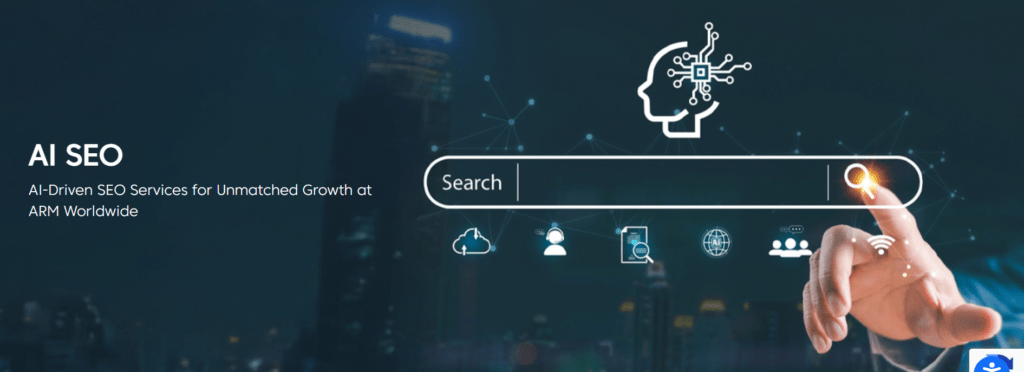In the ever-evolving landscape of digital marketing, search engine optimization (SEO) has always played a central role in driving traffic to websites and ensuring visibility. As the digital world continues to expand, so does the need for advanced techniques that can keep up with user behavior, preferences, and search intent. Enter Artificial Intelligence (AI), a transformative force that is revolutionizing SEO practices, particularly in the realm of search intent understanding.
Search intent—the reason behind a user’s query—has always been an essential component of SEO strategy. However, with the rapid advancement of AI-powered services, the way search engines interpret and respond to user intent is becoming increasingly sophisticated, offering businesses new opportunities to enhance their content and user experience.
The Role of AI in Understanding Search Intent
Search intent, often categorized into four main types—informational, navigational, transactional, and commercial investigation—requires a deep understanding of the user’s needs. In the past, SEO relied on keyword analysis to determine the intent behind a search query. However, this method was limited in its ability to truly understand the context behind a search. As search engines continue to improve, AI plays a crucial role in refining how intent is interpreted.
AI-powered services, such as machine learning (ML) algorithms, semantic search, and natural language processing (NLP), enable search engines to go beyond just keywords and understand the context of a search. These technologies analyze a range of factors, including the user’s search history, behavior patterns, location, and even the nuances in how queries are phrased, to deliver more relevant results.
How AI Is Shaping Search Engines
AI is not just transforming the backend algorithms of search engines; it’s also enhancing the user experience by providing more accurate and relevant results. With the help of AI, search engines like Google are able to understand the meaning behind a query rather than just matching keywords to content. This means that when a user types a question into a search bar, the search engine can now interpret the intent behind the question and provide results that best match what the user is truly seeking.
For instance, Google’s RankBrain is an AI-driven component that helps the search engine process and rank search results. RankBrain uses machine learning to analyze search queries and adapt to user behavior, ensuring that results are continually optimized for accuracy and relevance. This type of technology allows Google to understand complex, conversational queries that were previously challenging for traditional algorithms.
Moreover, AI is enabling voice search optimization, where search engines need to understand natural language and conversational queries. With more users turning to voice assistants like Google Assistant, Alexa, and Siri, understanding search intent through voice queries is essential. AI’s ability to process and understand conversational speech is allowing search engines to provide better voice search results, which in turn, influences SEO services for businesses.
Benefits of AI-Powered Services for SEO
AI-powered services offer a multitude of benefits to businesses looking to improve their SEO strategies and understanding of search intent. Here are some key advantages:
1. Improved Content Relevance
By using AI to analyze search intent, businesses can create content that is highly relevant to what users are looking for. AI tools can identify long-tail keywords, trends, and topics that are not immediately obvious to human marketers, helping businesses produce content that resonates with their target audience.
2. Enhanced Personalization
AI allows for a greater degree of personalization in SEO strategies. By understanding the search behavior and preferences of individual users, AI can help businesses deliver tailored content that addresses specific needs and desires. Personalized content leads to higher user engagement, longer on-page time, and increased conversions.
3. Faster Adaptation to Trends
AI can quickly analyze large volumes of data and identify emerging trends in search intent, allowing businesses to stay ahead of the curve. By leveraging AI-powered services, marketers can fine-tune their strategies and create content that aligns with shifting search behaviors, ensuring that their SEO remains competitive.
4. Enhanced User Experience
AI’s ability to understand search intent allows for the delivery of more accurate, user-friendly search results. This not only enhances the user experience but also improves key SEO metrics such as click-through rates (CTR) and bounce rates, which are crucial for ranking.
5. Smarter Keyword Research
AI can automate and optimize keyword research by analyzing large sets of data to uncover high-value search terms and intent-based keywords that human marketers might miss. This helps businesses target the right audience and improve visibility.
Conclusion: The Future of AI in SEO
As AI-powered services continue to advance, the way search engines understand and interpret search intent will only become more refined. Businesses that embrace AI in their SEO strategies will be better equipped to provide users with the highly relevant and personalized content they seek. Understanding search intent through AI is no longer just a trend—it’s the future of SEO. By leveraging the power of AI, businesses can stay ahead in the competitive digital marketing landscape, providing users with the most accurate, engaging, and satisfying search experiences possible.
The SEO mind meld between human creativity and AI’s analytical capabilities will shape the future of search, bringing us closer to an era of hyper-relevant content and seamless user experiences.













